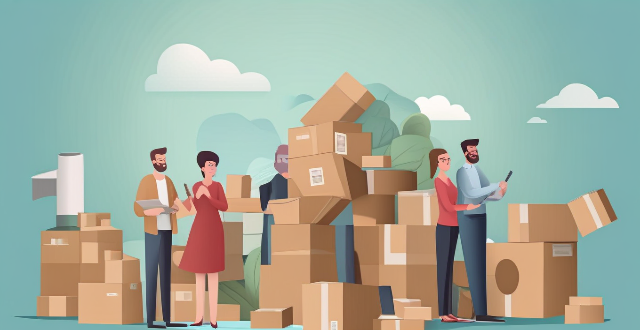The benefits of buying second-hand goods instead of new ones include reduced waste, conservation of resources, cost savings, resale value, supporting local economies, and promoting sustainable consumption. Buying used items helps reduce the amount of waste generated, conserves natural resources, saves money, retains high resale value, supports small businesses, and encourages a more responsible approach to shopping.

The Benefits of Buying Second-hand Goods Instead of New Ones
Introduction
Buying second-hand goods instead of new ones has become increasingly popular in recent years. This trend is driven by a combination of environmental concerns, economic considerations, and changing consumer attitudes towards ownership and consumption. In this article, we will explore the benefits of buying second-hand goods instead of new ones.
Environmental Benefits
Reduced Waste
One of the most significant environmental benefits of buying second-hand goods is the reduction of waste. When you purchase a used item, you are giving it a new life and preventing it from ending up in a landfill. This helps to reduce the amount of waste that is generated and contributes to a more sustainable future.
Conservation of Resources
Another environmental benefit of buying second-hand goods is the conservation of resources. When you buy a used item, you are not contributing to the demand for new products, which in turn reduces the need for raw materials and energy consumption in the production process. This helps to conserve natural resources and reduce the carbon footprint associated with manufacturing new products.
Economic Benefits
Cost Savings
One of the most obvious economic benefits of buying second-hand goods is the cost savings. Used items are often significantly cheaper than their new counterparts, allowing consumers to save money while still getting the products they need or want. This can be particularly beneficial for people on a tight budget or those looking to save money for other expenses.
Resale Value
Another economic benefit of buying second-hand goods is their potential resale value. Many used items retain a high resale value, especially if they are well-maintained and in good condition. This means that you can sell them later if you no longer need them, potentially recouping some of your initial investment.
Social Benefits
Supporting Local Economies
Buying second-hand goods can also support local economies by promoting small businesses and individual sellers. Many second-hand stores, such as thrift shops and consignment boutiques, are locally owned and operated. By shopping at these establishments, you are supporting your community and helping to create jobs and stimulate economic growth.
Promoting Sustainable Consumption
Finally, buying second-hand goods promotes sustainable consumption by encouraging people to think twice before purchasing new items. This can help to shift consumer attitudes towards ownership and consumption, leading to a more responsible and mindful approach to shopping. As more people adopt this mindset, we can work together to create a more sustainable future for ourselves and future generations.